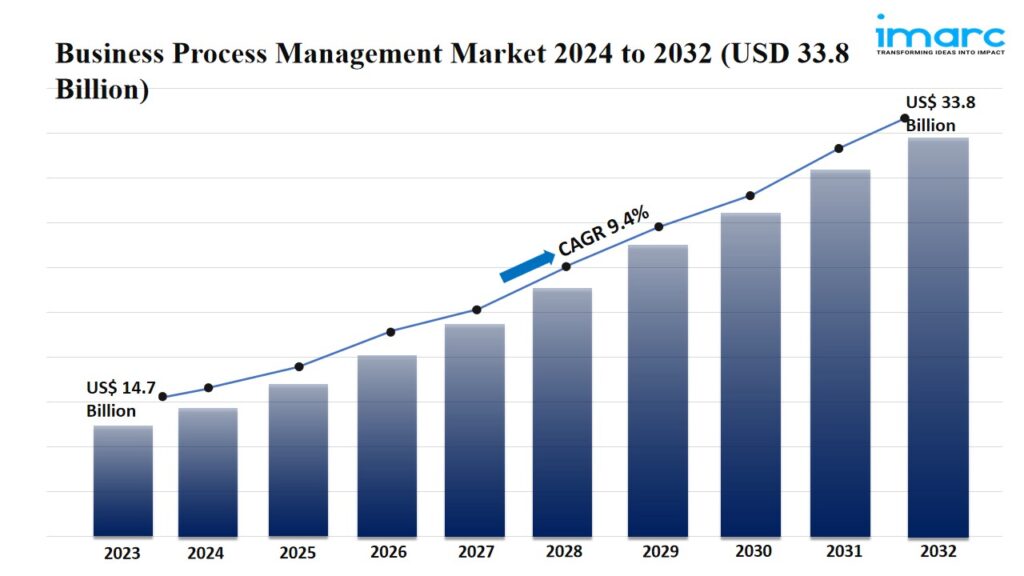
Global Business Process Management Market Statistics: US$ 33.8 Billion Value by 2032
Summary:

Industry Trends and Drivers:
Organizations across various industries are focusing on enhancing operational efficiency to stay competitive. Business process management (BPM) solutions streamline workflows by automating repetitive tasks, reducing errors, and minimizing process redundancies. By optimizing these processes, companies can notably cut down costs and improve overall productivity. This efficiency is particularly crucial for large organizations with complex, multi-departmental operations, where BPM can create a seamless integration of functions and better resource management. The demand for BPM is further driven by the pressure on businesses to reduce operational expenses while maintaining high service quality, encouraging its adoption as a vital tool for efficiency enhancement.
Companies are using BPM tools to optimize user-facing processes, enabling them to deliver faster and more personalized services. This includes automating workflows like individuals support, onboarding, order fulfillment, and complaint resolution to improve speed and accuracy. A well-designed BPM platform can integrate various channels and touchpoints in the client journey, providing a seamless experience across multiple platforms, such as mobile apps, websites, and in-person interactions. This focus on user satisfaction helps businesses build stronger relationships, improve retention, and differentiate themselves in crowded markets. The increasing user expectations, especially in sectors like retail and e-commerce, are driving the demand for BPM for creating responsive, user-centric business models.
Cloud technology allows organizations to implement BPM platforms quickly and efficiently without the need for notable upfront investments in infrastructure. These cloud-based BPM systems provide businesses with greater flexibility, enabling real-time collaboration across various departments and geographical locations. The ability to access BPM tools remotely makes it easier for organizations to maintain continuity, even when employees are working in different time zones or remotely. Moreover, cloud-based BPM offers scalability, allowing businesses to adjust their operations and workflows as they grow or face new challenges. These solutions also come with lower maintenance costs, making them an attractive option for small and medium-sized enterprises (SMEs) looking to enhance their process management capabilities.